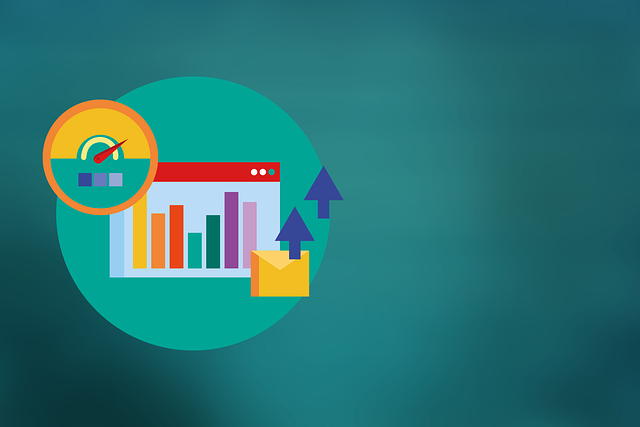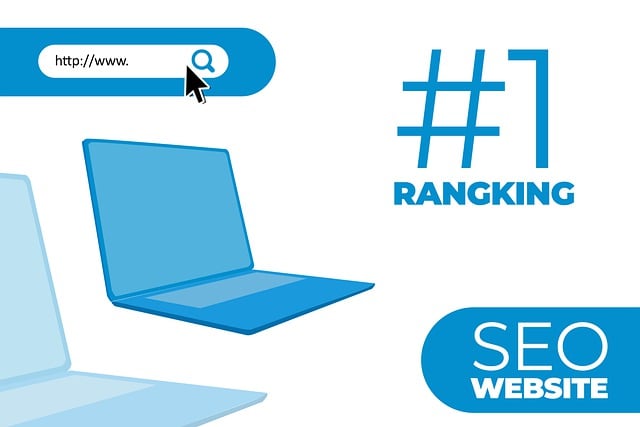Off-Page SEO is a crucial digital marketing strategy focusing on external factors influencing website rankings. It involves earning high-quality backlinks from reputable sources, engaging in social media interactions, and building relationships with industry influencers. Search engines use off-page signals to assess website quality, relevance, and trustworthiness, directly impacting search rankings. Effective Off-Page SEO strategies include creating valuable content, guest blogging on authoritative sites, collaborative partnerships, broken link building, and identifying relevant high-authority websites for backlinks. Monitoring link performance is vital for assessing success and making strategic adjustments. Ethical practices are essential, avoiding unethical methods like purchasing links or spamming. Quality backlinks from respected sources carry more weight in search engine rankings.
External link building is a cornerstone of successful Off-Page SEO, driving organic traffic and boosting website authority. This comprehensive guide delves into the strategies that underpin effective off-page optimization. We’ll explore how external links influence search engine rankings, uncover tactics for acquiring high-quality backlinks, and discuss ethical practices essential for long-term success. From identifying authoritative websites to creating compelling content, learn how to navigate the landscape of Off-Page SEO effectively.
Understanding Off-Page SEO and Its Impact on Rankings

Off-Page SEO refers to the strategy and practices that take place outside of your website to influence search engine rankings. It’s a crucial component in the broader digital marketing landscape, as it leverages external signals to enhance your site’s authority and visibility. Unlike On-Page SEO, which focuses on optimizing content within your site, Off-Page SEO involves activities like earning backlinks from reputable sources, engaging in social media interactions, securing mentions, and building relationships with industry influencers.
These external factors play a significant role in how search engines perceive and rank websites. Search algorithms consider off-page signals as indicators of your website’s quality, relevance, and trustworthiness. High-quality backlinks from authoritative sites can significantly boost your rankings by demonstrating to search engines that your content is valuable and trustworthy. Conversely, low-quality or spammy links can negatively impact your site’s performance. Thus, strategic Off-Page SEO practices are essential for achieving and maintaining high search engine rankings in today’s competitive online environment.
The Role of External Links in Search Engine Optimization

External links play a pivotal role in Search Engine Optimization (SEO), particularly in the realm of Off-Page SEO. When high-quality websites link to your content, it signals to search engines that your site is an authoritative source of information. This positive signal boosts your domain authority and improves your site’s ranking in search results.
These backlinks not only drive traffic but also help search algorithms understand the context and relevance of your pages. The more relevant and reputable the linking sites, the better for your SEO. Effective external link building involves identifying and securing links from influential websites within your industry, ensuring a natural and contextual placement that enhances both user experience and search engine visibility.
Strategies for Earning High-Quality Backlinks

Building high-quality backlinks is a cornerstone of successful Off-Page SEO. One effective strategy is to create and share valuable content that naturally attracts links from other websites. This could include in-depth guides, research studies, or unique tools that offer genuine value to readers and influencers in your niche. Another powerful approach is to engage in guest blogging on reputable sites within your industry. By contributing high-quality content, you not only gain a backlink but also expose your brand to a new audience.
Partnerships and collaborations can also play a significant role. Working with complementary businesses or industry influencers to create joint projects or host webinars can generate backlinks from their websites and social media channels. Additionally, leveraging broken link building techniques by identifying missing or outdated links on relevant sites and offering your content as a replacement is another effective method. Engaging in these strategies can help you earn valuable backlinks that boost your website’s authority and visibility in search engine results.
Identifying Relevant and Authority Websites for Link Building

Identifying relevant and authoritative websites is a strategic step in successful off-page SEO. It involves researching platforms that align with your niche, possess high domain authority, and offer quality content. These could be industry blogs, reputable news outlets, or well-established brands within your target market. When evaluating potential link building opportunities, focus on sites that provide valuable backlinks from relevant sources.
High-quality websites carry significant weight in search engine rankings. They are more likely to engage audiences and establish trustworthiness for both the linked site and the content shared. Effective link building strategies should aim to secure backlinks from these influential platforms, which can significantly boost your website’s authority and visibility in search results.
Creating Compelling Content to Attract Natural Links

Creating compelling content is a strategic move within Off-Page SEO to attract natural links from other websites. It involves crafting high-quality, informative, and engaging material that resonates with your target audience and offers unique value. This could be in the form of in-depth guides, research studies, or original data visualizations. When your content stands out as a valuable resource, other sites are more inclined to naturally link back to it.
To ensure your content is link-worthy, focus on addressing common queries or pain points within your industry. Provide insights that solve problems or offer novel perspectives. Regularly updating your content to keep it fresh and relevant also encourages repeat visits and potential links from sites looking to provide their readers with the latest information.
Utilizing Guest Blogging to Expand Your Reach

Guest blogging is a powerful strategy for off-page SEO, allowing businesses to reach new audiences and establish their brand authority. By contributing high-quality content to reputable websites within your industry, you can tap into an existing audience and gain valuable backlinks to your site. This process fosters interlinkage between relevant domains, enhancing the overall search engine visibility of both the guest blogger and the hosting site.
When considering guest blogging opportunities, aim for sites with a strong domain authority and organic traffic. This ensures that your content is exposed to a dedicated audience and increases the likelihood of securing a high-quality backlink. Crafting compelling, unique content tailored to the target website’s readers can lead to more engagement, including increased time spent on the page and reduced bounce rates, which are all favorable signals for search engines.
Monitoring and Analyzing Link Performance

Monitoring and analyzing link performance is a crucial aspect of off-page SEO, as it allows you to assess the effectiveness of your external link-building efforts. By tracking the health and impact of incoming links, you gain valuable insights into how search engines perceive your website’s authority and relevance. Tools like Google Search Console and Ahrefs can provide comprehensive data on the sources of your backlinks, their anchor text distribution, and the referring pages. This information is essential for identifying high-quality links that contribute positively to your site’s ranking potential.
Regular analysis enables you to quickly notice any dramatic changes in link profiles, which could indicate issues like penalty signals or sudden drops in traffic from linked domains. Proactive monitoring helps in taking timely measures to mitigate negative impacts and optimize the overall link ecosystem. It also facilitates the discovery of unexpected sources of quality links, allowing for strategic adjustments in your off-page SEO strategy to harness maximum benefits.
Ethical Practices for Successful Off-Page SEO

Building external links is a crucial component of Off-Page SEO, but it’s essential to employ ethical practices to ensure long-term success and maintain a positive online reputation. Unethical link building practices, such as purchasing links or engaging in spammy tactics, can lead to severe penalties from search engines and damage your website’s credibility. Instead, focus on creating valuable content that naturally attracts backlinks from authoritative sources. This includes conducting thorough research, identifying relevant industry influencers, and contributing high-quality, informative pieces to reputable platforms.
Engaging in ethical Off-Page SEO involves building relationships with other webmasters and influencers through genuine collaboration and mutual benefit. Guest blogging, for instance, allows you to share your expertise while earning a link back to your site. Similarly, offering your unique insights and resources to industry publications can generate backlinks from high-authority sites, enhancing your website’s visibility and search rankings over time. Remember that quality always trumps quantity; one well-placed, earned link from a respected source carries more weight than multiple links from low-quality or irrelevant websites.
